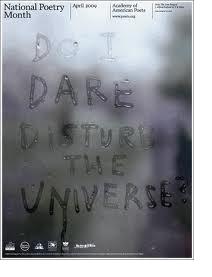 When was the last time you asked yourself the Robinson Crusoe Question and made a list of the items you'd most want to have if castaway from civilization?
When was the last time you asked yourself the Robinson Crusoe Question and made a list of the items you'd most want to have if castaway from civilization?
This question came up for a group of us, after reading "The Portable Phonograph," a short story about the last survivors of a war that has destroyed virtually all forms of life and human endeavor. In this Walter Van Tilburg Clark classic, the few men who remain meet around a peat fire once a week. The gathering involves a single play of one of a dozen worn records on the phonograph that the character of Dr. Jenkins has carried through the apocalypse. One evening, a stranger -- a sick young musician -- joins the communion. For this special occasion, Dr. Jenkins announces that he will use one of the three remaining steel needles, rather than a thorn, and selects a Debussy Nocturne. Before this ritual, however, Dr. Jenkins shares a bit of his tale. Like, a "prehistoric priest," he unwraps a sacred bundle, explaining in a reverential hush that when he understood the end was coming, he knew what he must bring:
"Perhaps I was impractical," he continued. "But for myself, I do not regret, and what do we know of those who will come after us? We are the doddering remnant of a race of mechanical fools. I have saved what I love; the soul of what was good in us here; perhaps the new ones will make a strong enough beginning not to fall behind when they become clever..." "Shakespeare, the Bible, Moby Dick, The Divine Comedy," one of them said softly. "You might have done worse; much worse."
The men argue a bit about the decision not to have taken Shelley too. Would the poet of the ultimate absolute not have been "more soul than we can use," one asserts. Or, as another maintains, do "we need the absolute if we are to keep a grasp on anything" but "sticks and peat clods and rabbit snares"?
So, here's a question for us, dear reader: What is the "earthly good" of art when a weapon may be the only real "ultimate absolute"? For, as we learn in the closing lines of the story, the musician, who has been profoundly overcome by the beauty of the nocturne, now lurks in the shadows outside the canvas closure where Dr. Jenkins hides his treasures. Dr. Jenkins, the gracious host and savior of culture, goes to bed with his nerves on high alert and his hand in close comfort to a lead pipe.
Now, with this sad ending in mind, ask yourself -- as my friends and I did -- what you would bring along, if forced into the wilderness by disaster. What would you take for yourself or for others you might encounter? Would you take these items to enjoy, to share, to preserve, or to protect?
Some amongst my group listed photographs; others chose tools. Nearly everyone thought a defensive weapon was a good call. But I kept thinking about the books. The notion that irreplaceable miracles of human imagination could simply vanish was crushing. I argued that I would fill my arms with books and books alone, for I wouldn't want to live in a world without literature,...to hell with weaponry or utensils! This elicited a rejoinder that's going on my list of all-time favorites, with one friend responding that he'd carry a gun in one arm and me in the other.
But, cheeky jokes aside, who is carrying the great works? They linger still in libraries, bookstores, Liberal Arts institutions, and (to varying degrees) our collective memories. Granted, Shakespeare does still get staged. John Keats did entertain some fleeting new dalliances, thanks to the recent movie Bright Star. These flirtations may let us tick the culture box, yet they don't scratch a deeper yearning. Oxygen needs time to circulate to the vital parts. Couldn't we, shouldn't we, be applying a bit of mouth-to-mouth to bring these beautiful creatures back to life for ourselves and for each other?
I hadn't been thinking of it in these terms, but I've been organizing poetry circles in assisted living and retirement communities since earlier this year. We recite the classics and share new favorites. In the process of drawing closer to the works themselves, we draw closer to each other. In a sense, maybe what we are doing is "carrying the books" and carrying ourselves more fully into this life. I haven't been writing about these poetry circles, but I think now that I shall. They are too precious to be kept quiet inside my own binding. Maybe the mouth-to-mouth of the blogosphere can spread the idea around and grow it. Let's carry each other.
